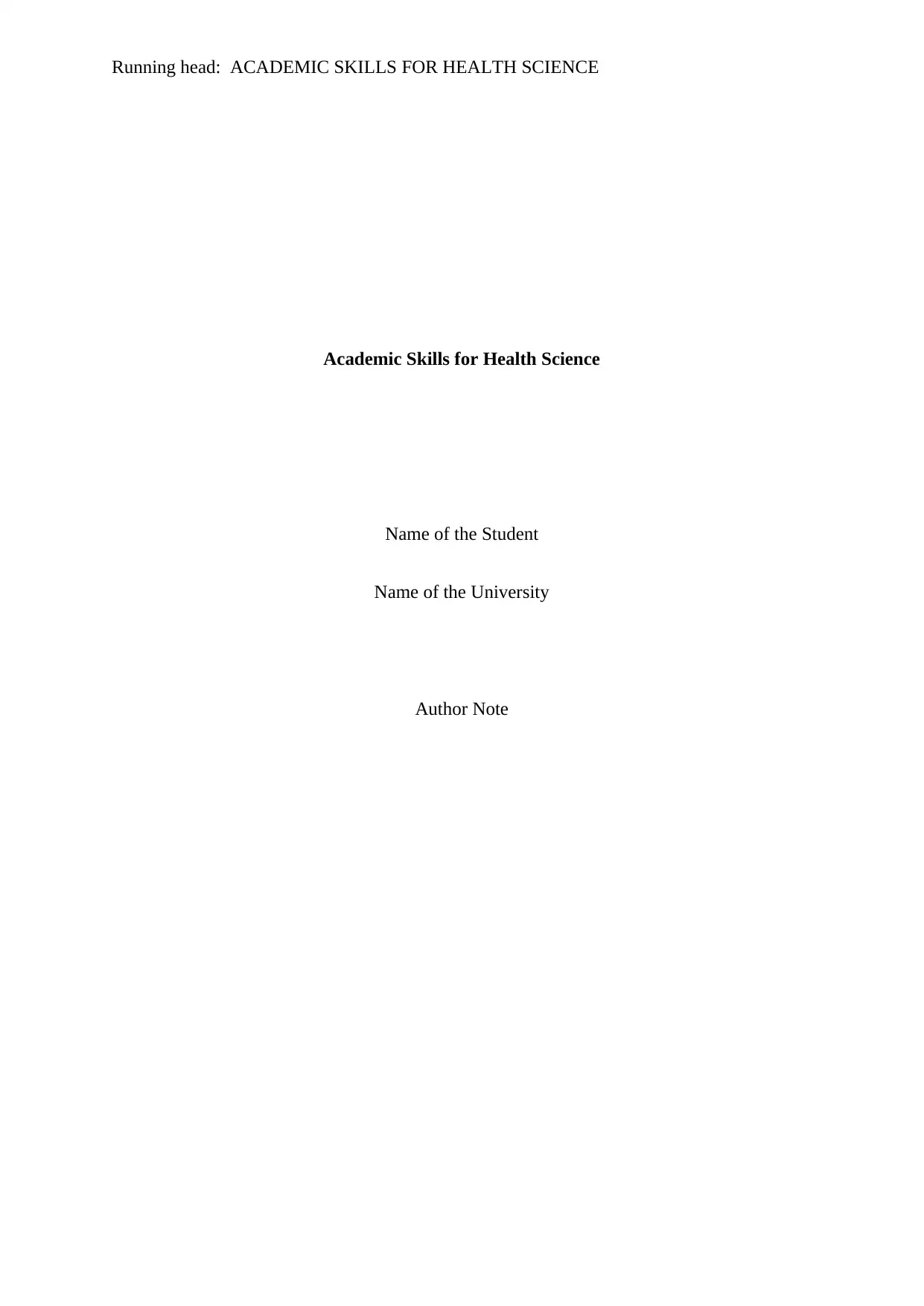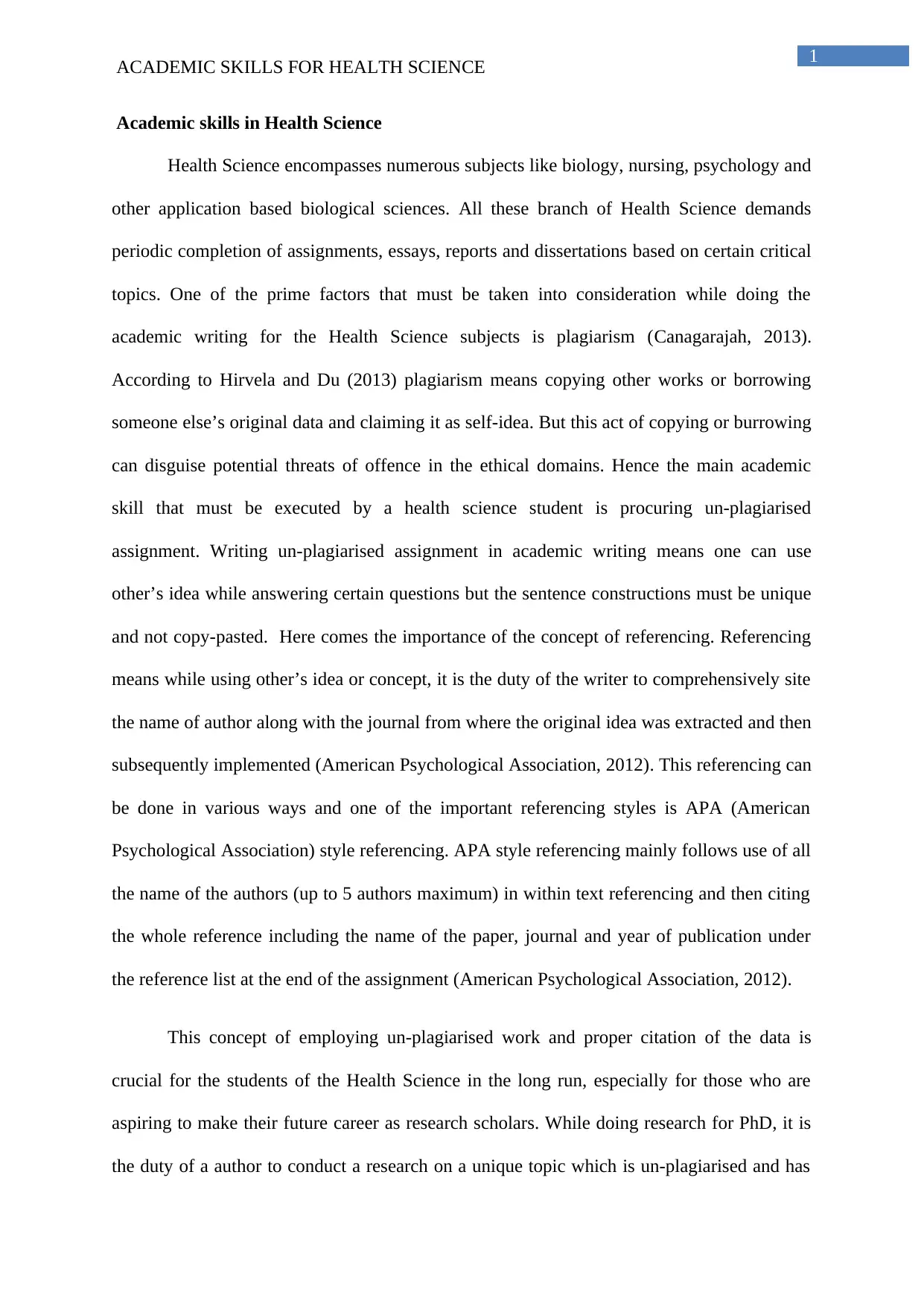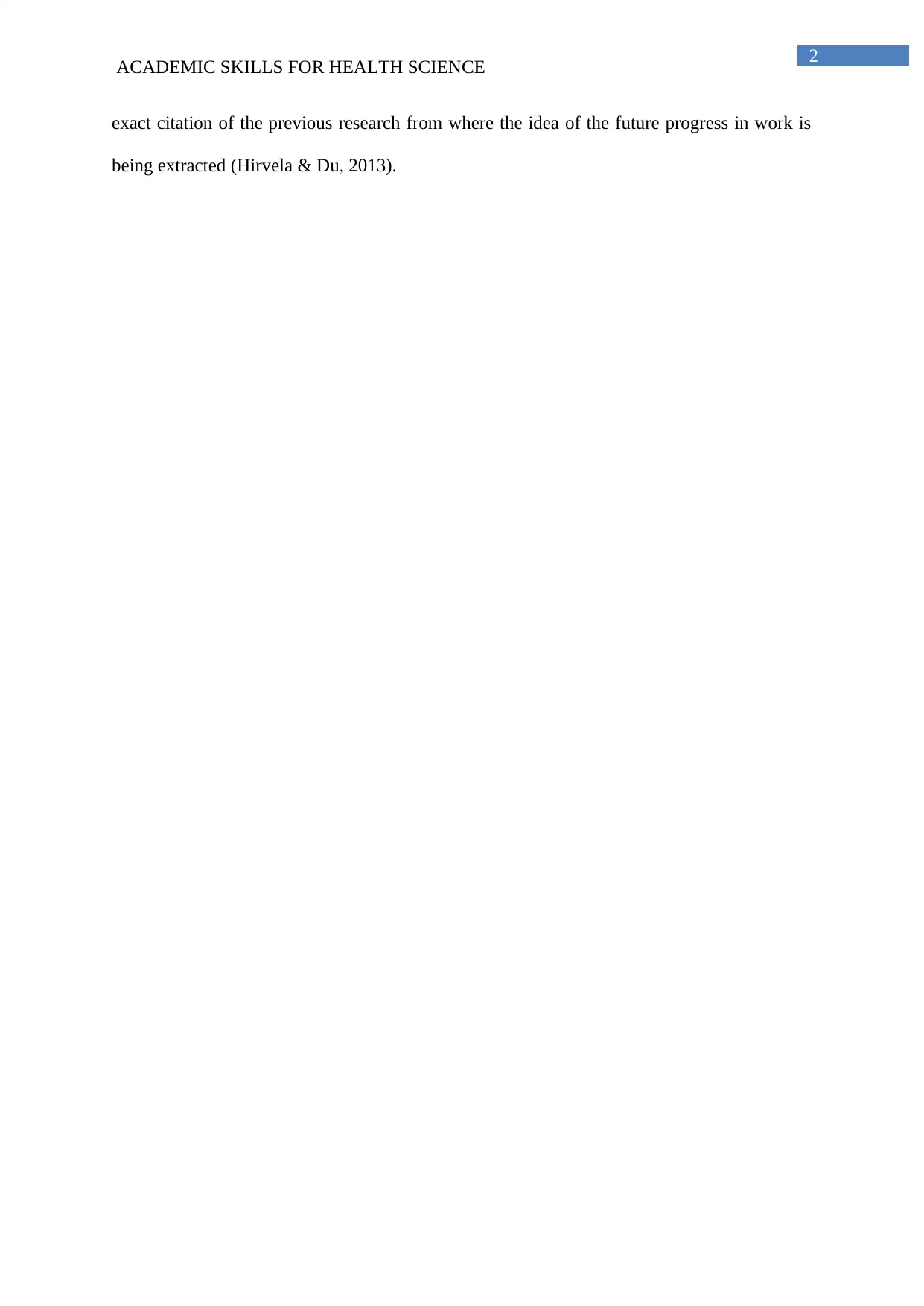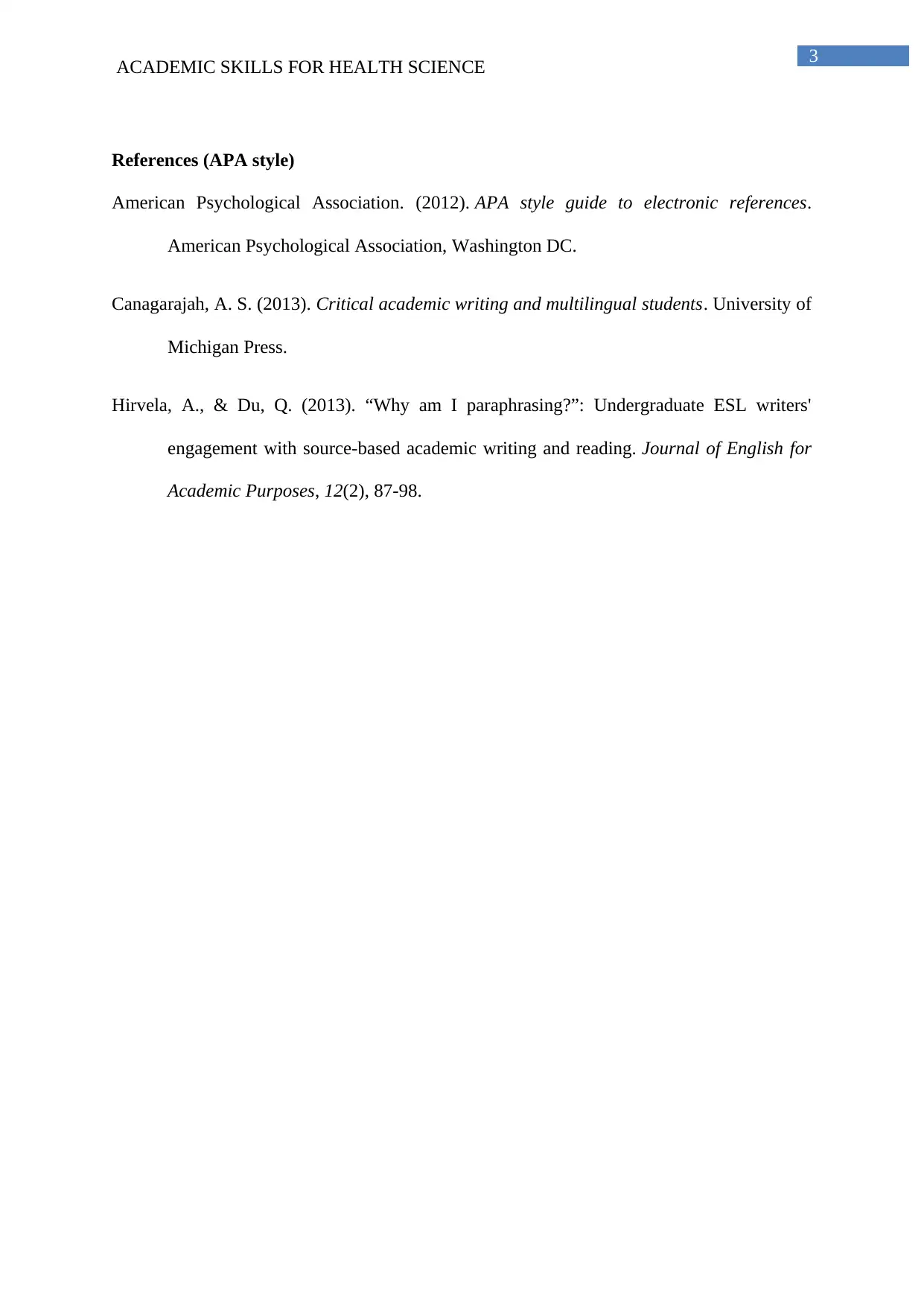Health Science Academic Skills: Plagiarism, Referencing and APA Style
VerifiedAdded on 2023/06/12
|4
|539
|353
Essay
AI Summary
This essay explores the crucial academic skills required in health science, emphasizing the importance of avoiding plagiarism through proper referencing. It highlights that health science, encompassing fields like biology, nursing, and psychology, demands rigorous academic writing. Plagiarism, defined as copying or borrowing others' ideas without attribution, poses ethical concerns. The essay underscores the necessity of unique sentence construction and proper citation when incorporating external ideas. Referencing, particularly in APA style, involves comprehensively citing authors and sources. APA style includes listing all authors within the text and providing full references at the end. The essay concludes that mastering un-plagiarized work and accurate citation is vital for health science students, especially those pursuing research careers, where originality and precise attribution are paramount.
1 out of 4










![[object Object]](/_next/static/media/star-bottom.7253800d.svg)